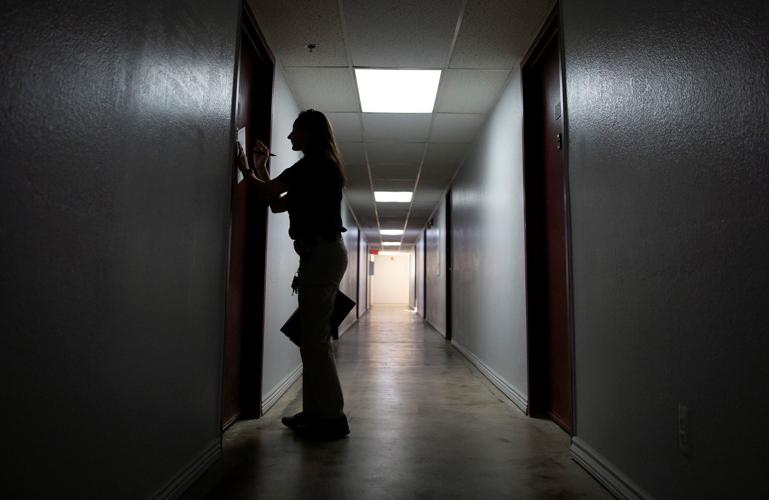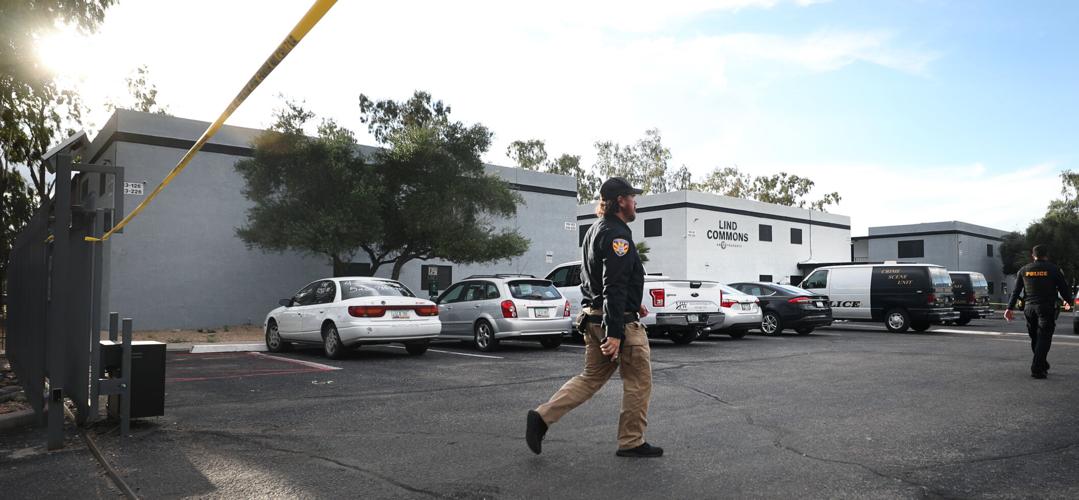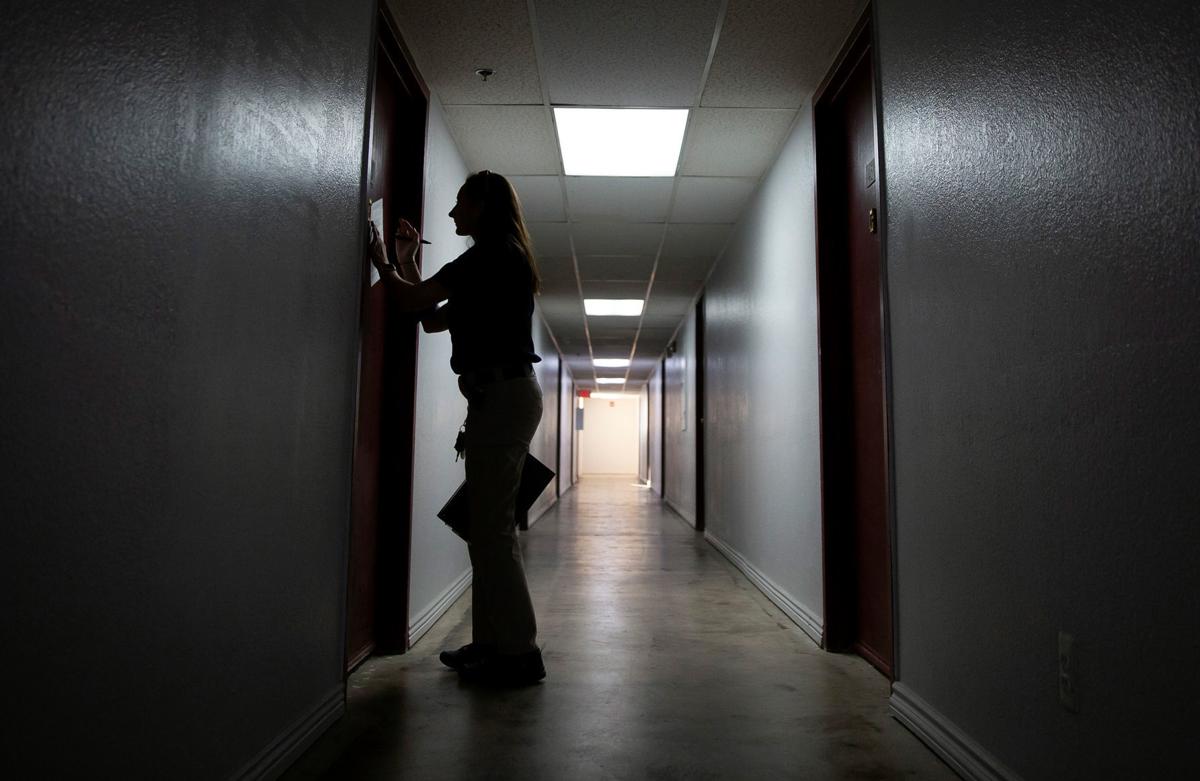Most of the time, the job of “constable” may come to your mind only when you get to the bottom of an election ballot and realize there’s another race to vote on.
If you’re a conscientious voter, a moment of panic may ensue as you scour your memory for an inkling of what the position entails, let alone who the best candidate is.
That’s the key problem with these antiquated constable positions: They are elected. That means anyone can win the quasi-law-enforcement job, regardless of background. And while they are theoretically accountable to voters, elections only happen every four years, and voters usually know little about the constables, who often run unopposed.
The outrageous and tragic death of Pima County Constable Deborah Martinez-Garibay, who was shot and killed on Thursday while delivering an eviction order, was the latest in a series of incidents that show the need for deep change in the constables’ offices. An apartment manager and a neighbor also died in the attack by the tenant, who killed himself.

Martinez-Garibay
The Legislature should consider eliminating the elected positions altogether, or at minimum give the counties flexibility in how to select constables and cover their duties.
Consider that in recent years in Pima County:
One constable, Oscar Vasquez, was suspended during his first term after complaints and incidents related to his driving, culminating in a complaint of public urination in a person’s yard.
Vasquez was nevertheless re-elected unopposed in 2020, then was suspended for six months in 2021 for refusing to serve an eviction or seek out alternatives in the case. He was asked to resign by the state Constable Ethics Standards and Training Board but did not.
Constable George Camacho was fired as an employee of the constables office before running for the post in 2020. He won the primary election, then, heading into an uncontested general election in 2020, was served with a protective order and told not to possess a gun. Camacho denied any wrongdoing, won his election and is serving as constable now, though the county initially restricted where he could carry his duty weapon.
When she died, Martinez-Garibay was under investigation for falsifying signatures to get on the 2022 ballot. She had also obtained a protective order against a political rival, which was overturned when he contested it.
In Maricopa County and around the state there have also been other serious incidents showing the weakness of the system for electing constables. Former state legislator Carl Seel won a seat, but he resigned in May after it was revealed he had failed to serve 80 orders of protection.
In 2020, a then-constable from Phoenix, Doug Middleton, was caught on video barging into a Russian-import store to collect a $3,400 judgment, bullying employees there and saying “I’m not in your country, I don’t play by your rules.”
‘The job has changed’
These are just some of the best-known, publicly documented incidents that have occurred in offices that generally operate out of the public eye, except for those who are receiving summonses, protection orders, eviction orders and similar legal documents.
Serving these documents is the fundamental role of the constables, and it is spelled out in the state laws, Title 22, that also establish the justices of the peace. These are the elected judges who preside over misdemeanor criminal cases and small-scale civil cases. In Pima County, their office, too, has been roiled by conflicts and allegations of incompetence or wrongdoing.
It is inherent, it seems, in these legal offices that are elected by voters. Because they derive their power from the voters, administrative oversight of them is limited and the office holders may feel accountable only at election time.

A Pima County constable walks into the crime scene at the Lind Commons Apartments where Constable Deborah Martinez-Garibay and three others were killed.
That might have been OK in previous years. It isn’t anymore, as the demands on these jobs become more severe.
My neighbor Mary Dorgan knows all about it. She served more than 18 years as a constable before stepping down in 2019. Her father, Thomas Dorgan, was a constable, too, as was her brother Dan. Her father didn’t even carry a gun, she said.
“My dad would go out with his bolo tie and his badge on his belt,” she recalled Saturday. “The last year or two he had pepper spray on his key chain. I think it went off in his pocket and he said he wouldn’t do that anymore.”
“The job has evolved and changed,” she added.
Guns, drugs and deep disrespect became common during her tenure.
“It became like, when you got your papers that day, ‘What’s behind Door No. 1? What am I going to face that day?’ “
County tries reforms
As societal problems have deepened, the selection and duties of the constables have stayed the same. They get relatively little training, nothing like a police academy, and their oversight is limited by the fact that they are elected.
The Board of Supervisors has the power to suspend but can’t fire a constable, and the statewide Constable Ethics Standards and Training Board can put a constable on probation or recommend discipline to the board, but can’t fire the constable either.
Pima County has been working on intermediary measures to improve training, standardize behavior and even establish uniform dress. Former Pima County Sheriff Mark Napier, working as an assistant county administrator, dug into the performance of the constables last year and recommended changes.
“The constables are a fractured group,” Napier concluded in a Sept. 29, 2021 memo. “This both with respect to personal interaction, appearance and how they pursue their respective duties. They seem incapable of reaching full consensus on how to address many issues.”
On the recommendation of former county administrator Chuck Huckelberry, last year the board eliminated one justice of the peace district, the districts that constables represent, to even out the workloads. He also recommended lowering the salary, now $67,000, for constables who don’t serve enough legal papers.
Legislature should act
Former constable Kristen Randall, who resigned in January, was working with Huckelberry on training and performance issues before he was injured in a bicycle accident last year and forced to step down himself.

Tim Steller, opinion columnist for the Arizona Daily Star
“We were working on developing a policy manual, but also working with risk management to look over the firearms policy. There wasn’t much of a policy at all,” Randall said Saturday. “If the constables were to submit to just admitting there’s a problem and saying there needs to be changes and doing that voluntarily, it could probably be reformed, but in my experience, they’re unwilling to do that.”
Randall was appointed to replace Dorgan when she retired. She was known as a rebel constable who instituted more social-service-style practices toward people receiving eviction orders, alongside fellow Constable Bennett Bernal. After Randall stepped down, Martinez-Garibay was appointed to replace her in March.
Dorgan thinks the old system is no longer tenable. Either constables should no longer be elected, she said, or one constable should be elected per county and allowed to hire certified law-enforcement officers as deputies, much like the sheriff.
“I don’t know if a civilian can really handle this job anymore,” she said. “It’s evolved into a law enforcement job.”
Without prejudging what went wrong Thursday, it’s clear that in general constables could use more training and often more backup. They could also use more help from social workers or others who can help handle housing and family issues.
The county doesn’t have the power to make too many changes on its own. The Legislature has that power and should use it. If it doesn’t eliminate the constable jobs as elected positions altogether, which it should, then it should at least give the county governments more leeway to oversee constables, including the power to fire them.
The voters, when they get that ballot, often don’t know enough about the candidates, or don’t have enough choice, to pick a person qualified for the job. As Thursday’s killing showed, the job is too risky these days to hire constables this way.







